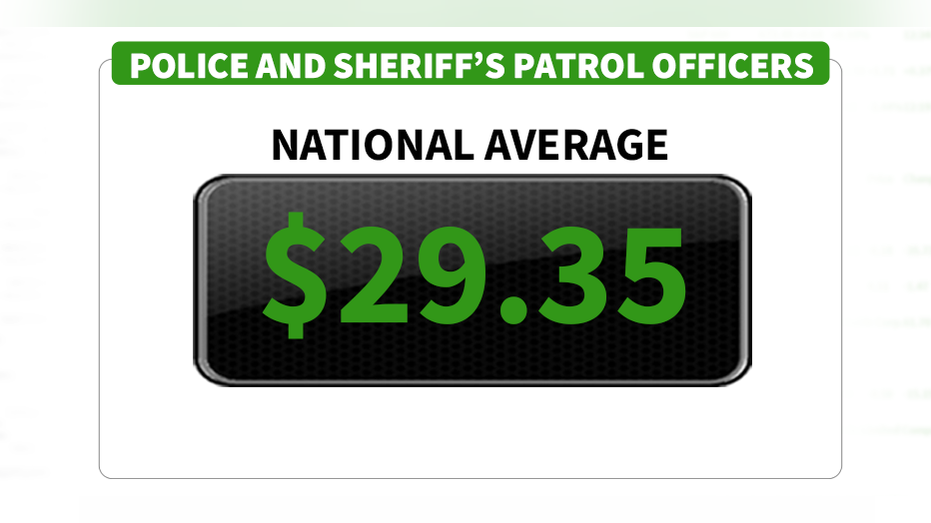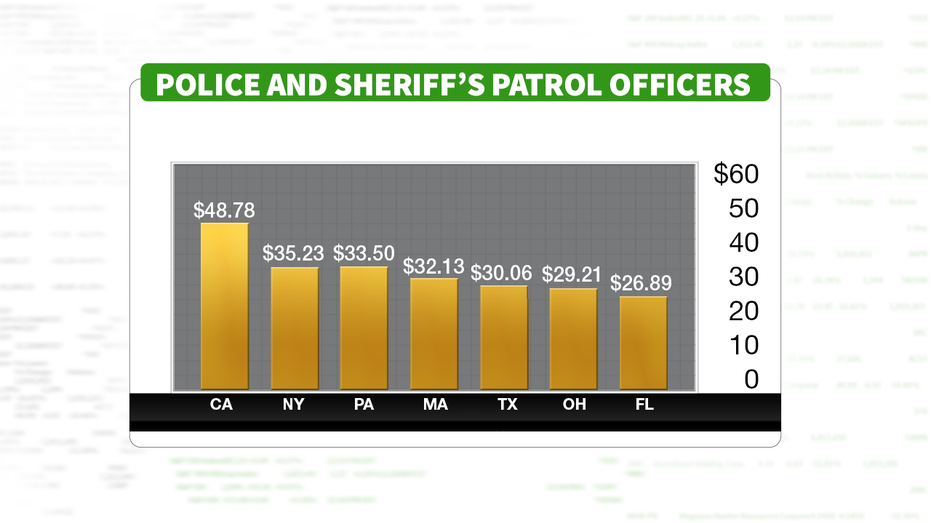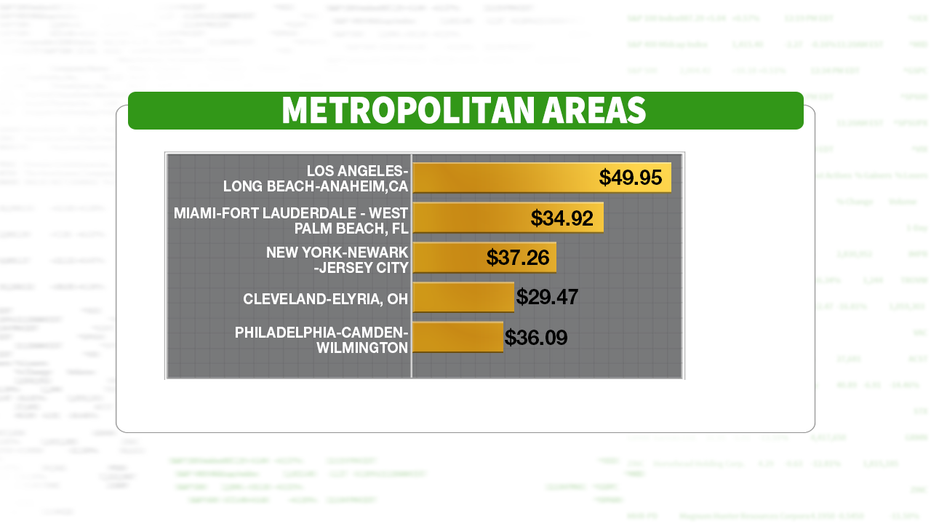Here's how much police officers make to put their lives on the line
Six police officers were injured Wednesday in an active shooter situation that unfolded on Wednesday in Philadelphia. Officers on the scene reported they "had to escape through windows and doors to get (away) from a barrage of bullets."
While serving a narcotics warrant at in North Philadelphia, two officers were held hostage inside a house for more than four hours and needed to be evacuated by a SWAT team.
In a Thursday morning press conference, Philadelphia Police Commissioner Richard Ross said it was "nothing short of a miracle" that multiple officers did not die.
As the country saw in Philadelphia, police officers take great risks every day to do their jobs, so how much are they compensated to put their lives on the line?
AVERAGE POLICE PAY NATIONWIDE

The national average pay for a police officer in the U.S. is $29.35 per hour, according to the Bureau of Labor Statistics. In 2018, the average salary was $63,380 per year. More than 12,000 local police departments were operating in the U.S. in 2016, the Bureau reported.
STATES BY THE NUMBERS

Police and sheriff's patrol officers in California are paid most, at $48.78 an hour, while those in Mississippi make the least, at $17.09 an hour.
CITIES BY THE NUMBERS

City law enforcement often receive higher compensation because of higher crime rates in metropolitan centers. The report shows Greater Los Angeles area cops make the highest pay with close to $50 an hour, while Cleveland police officers make just shy of $30 per hour. BLS reports that in Philadelphia, where police were held hostage Wednesday, they make $36.09 per hour.
TRAINING COSTS
Training and equipping a standard officer may exceed $100,000 and take up to 18 months, according to the National Police Foundation, and a law enforcement agency needs about three-five years of service to recoup this initial investment.
Brett Meade, Ed.D., deputy chief of police at the University of Central Florida, urges local communities to seek personnel who are reflective of the community and to incentivize staying with the force.
Meade says vacancies lead to increased overtime costs covering additional shifts, decreased officer morale with less time off, and less community service.
CLICK HERE TO READ MORE ON FOX BUSINESS
According to Meade, retention and successful recruitment are critical to a safer community and can be achieved through finding applicants connected to the community, having personal relationships with military veterans who would be potential candidates in the area, and investing in the current force.




















